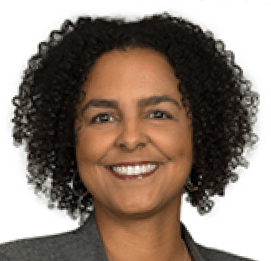The Power of Radical Acceptance
with Patrice Crisostomo, PhD and Leeanne Merritt, LCSW

with Patrice Crisostomo, PhD and Leeanne Merritt, LCSW

Episode 18, Season 1 | February 11, 2021
Life has perhaps never felt more out of our control than it has over the past year. But refusing to accept our reality doesn’t change its outcome. Rather it increases the suffering that comes from the futility of fighting against it. Enter Radical Acceptance: the practice of letting go of the illusion of control and being willing to accept things as they are right now. In this episode, Patrice Crisostomo, PhD and Leeanne Merritt, LCSW, discuss the life-changing power of radical acceptance and share strategies for making the conscious choice to stop resisting and denying the way things are. It doesn’t mean we have to like or agree with the situation, just acknowledge it in order to reduce the suffering caused by trying to change something that’s out of our control. Only when we accept it all the way, just as it is, can we work on changing our behaviors and emotions in order to improve our situation and, ultimately, our lives.

Dr. Patrice Crisostomo is a licensed clinical psychologist who is passionate about working with children, adolescents, parents and families. She has extensive experience conducting comprehensive psychological assessments and providing evidence-based treatments for youth and families. She graduated from the University of California, Berkeley with a BA in Psychology, with honors. Thereafter, she coordinated a longitudinal research study evaluating treatment outcomes for children with ADHD. She pursued graduate studies at the University of Denver (DU), where she completed her MA and PhD in Child Clinical Psychology. At DU, her research focused on understanding components of psychotherapy that lead to improvements in the treatment of adolescent depression. She completed an APA-accredited pre-doctoral psychology internship at the Lucile Packard Children’s Hospital at Stanford University/CHC’s consortium. She sought continued training in comprehensive psychological assessments and evidence-based treatments of anxiety and mood disorders, autism and developmental disabilities and eating disorders through a postdoctoral fellowship within the Department of Child and Adolescent Psychiatry at Lucile Packard Children’s Hospital at Stanford University (APA-accredited). Dr. Crisostomo has enjoyed working within non-profit mental health organizations. She previously served as the clinical director of an Intensive Outpatient Program (IOP) at a clinic in West Oakland for adolescents and young adults with mood, anxiety and other comorbid disorders. She also worked at another local non-profit on the Peninsula conducting psychological assessments for children and adolescents. Currently, she is a program manager for CHC’s Clinical Services division. A California native, she enjoys cooking, hiking, practicing yoga, going to the beach and traveling.

Life has perhaps never felt more out of our control than it has over the past year. But refusing to accept our reality doesn’t change its outcome. Rather it increases the suffering that comes from the futility of fighting against it. Enter Radical Acceptance: the practice of letting go of the illusion of control and being willing to accept things as they are right now. In this episode, Patrice Crisostomo, PhD and Leeanne Merritt, LCSW, discuss the life-changing power of radical acceptance and share strategies for making the conscious choice to stop resisting and denying the way things are. It doesn’t mean we have to like or agree with the situation, just acknowledge it in order to reduce the suffering caused by trying to change something that’s out of our control. Only when we accept it all the way, just as it is, can we work on changing our behaviors and emotions in order to improve our situation and, ultimately, our lives.
Dialectical Behavioral Therapy website
Sitting Still Like a Frog: Mindfulness Exercises for Kids (and Their Parents) by Eline Snel
Sign up for the CHC Virtual Village to receive weekly email updates about upcoming news, events and resources related to your interests.
Enjoying the CHC Voices of Compassion Podcast? Please consider supporting CHC’s Community Education and outreach efforts, like this podcast and CHC Online Resource Library, with a gift today.